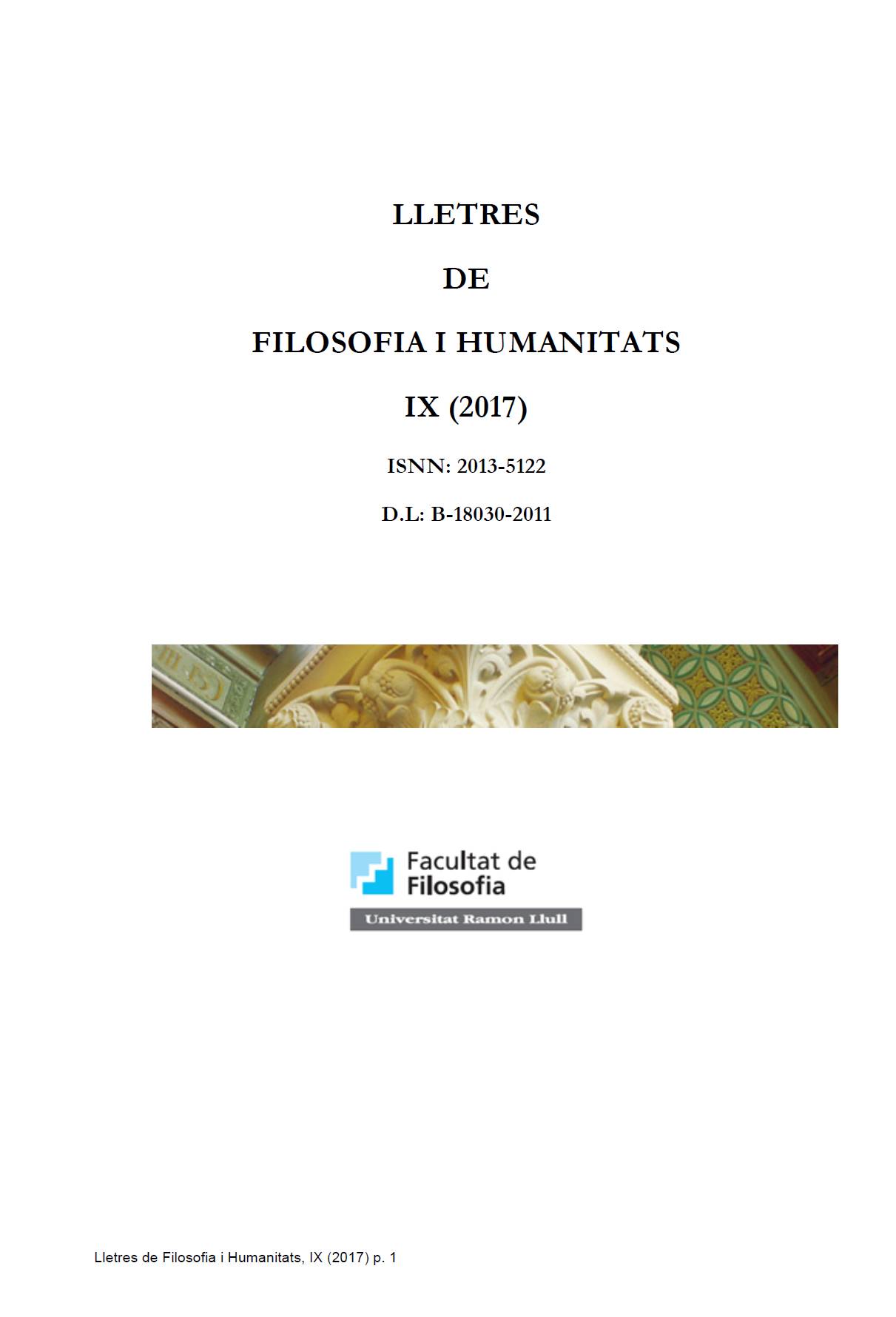M. Cacciari: la onto-teo-logía como fenomenología del alma
Article Sidebar

Main Article Content
En la tesi doctoral que vaig defensar al gener de 2016 a la Facultat deFilosofia de la Universitat Ramon Llull vaig presentar el pensament de Massimo Cacciaria la llum del concepte de onto-teo-logia. Hi vaig intentar contrastar l'especulació del pensador italià amb altres autors (Levinas, Zizizoulas, Gilson) amb la intenció de ressaltar fins aquin punt el paradigma onto-teo-lògic detectat per Heidegger ha resultat ser decisiu. La postura de Cacciari s'emmarca, a la meva manera de veure, en una revisió de l'esmentat paradigma que respon a una incursió en el pensament neoplatònic pagà i cristià que interroga el 'paradigma' a través d'apories. El present article pretén ser tan sols una mostra del treball especulatiu de Cacciari des d'un dels capítols de la segona part de la seva trilogia: Della cosa ultima. Al final del mateix s'ofereix com a apèndix una breu notícia biogràfica i bibliogràfica del filòsof italià.
In the Ph.D. thesis that I defended in January 2016 in the Faculty ofPhilosophy at Ramon Llull University, I presented Massimo Cacciari’s thought through theconcept of onto-theo-logy. In that research I tried to compare Cacciari’s ruminations andthose of other authors (Lévinas, Zizioulas, Gilson) on the subject, in order to show to whichextent the onto-theo-logical paradigm, which was noticed by Heidegger, has been decisive in 20th-century thought. In my opinion, Cacciari’s position can be interpreted as a revision ofthat paradigm—a revision resulting from an understanding of pagan and ChristianNeoplatonism which interrogates such paradigm through aporias. This article only wants tooffer an example of Cacciari’s reflexive work, in the sense that has just been explained, focusing on one of the chapters in Della cosa ultima, the second book of his trilogy.